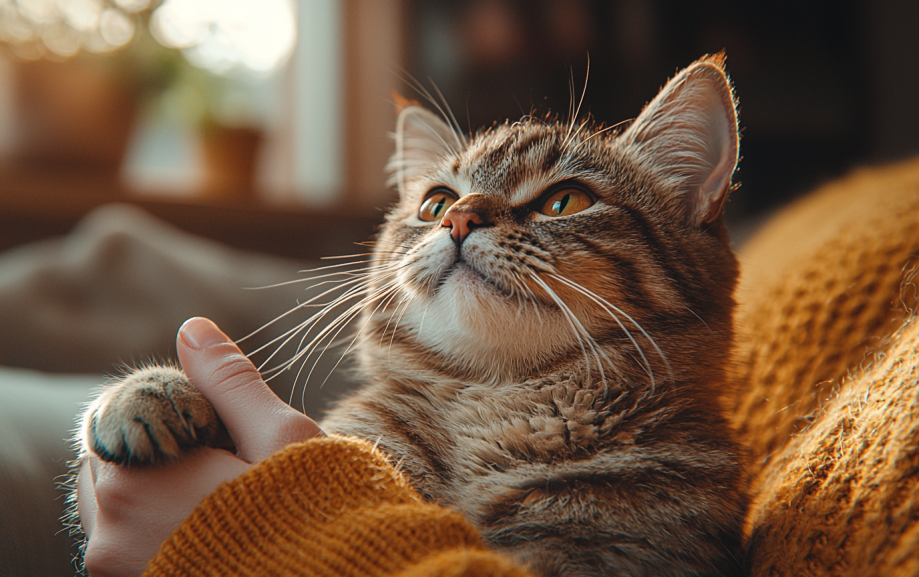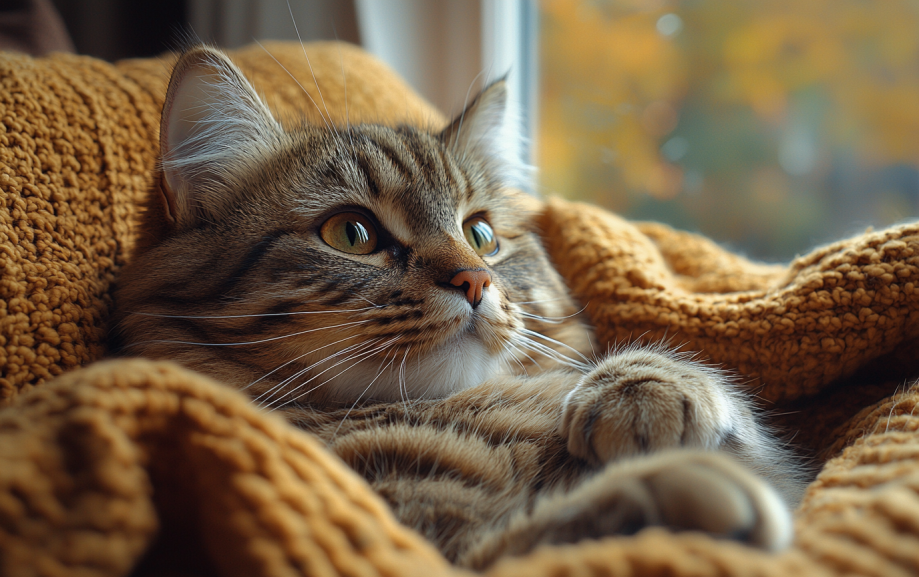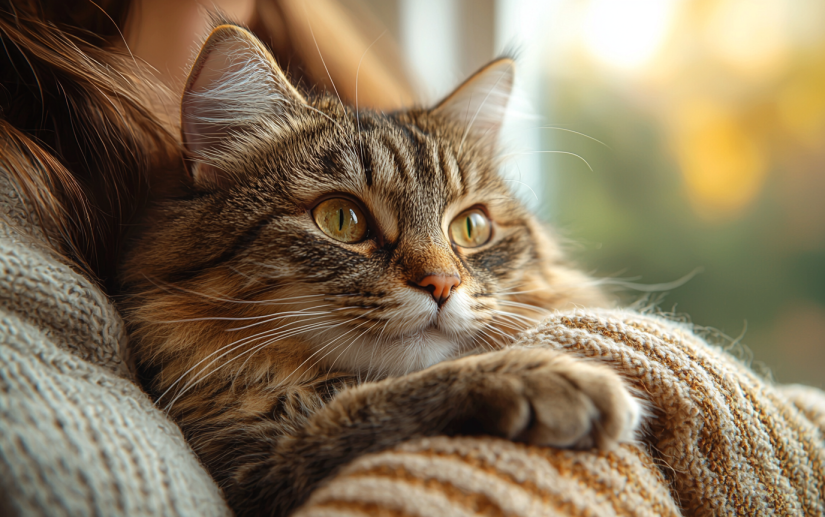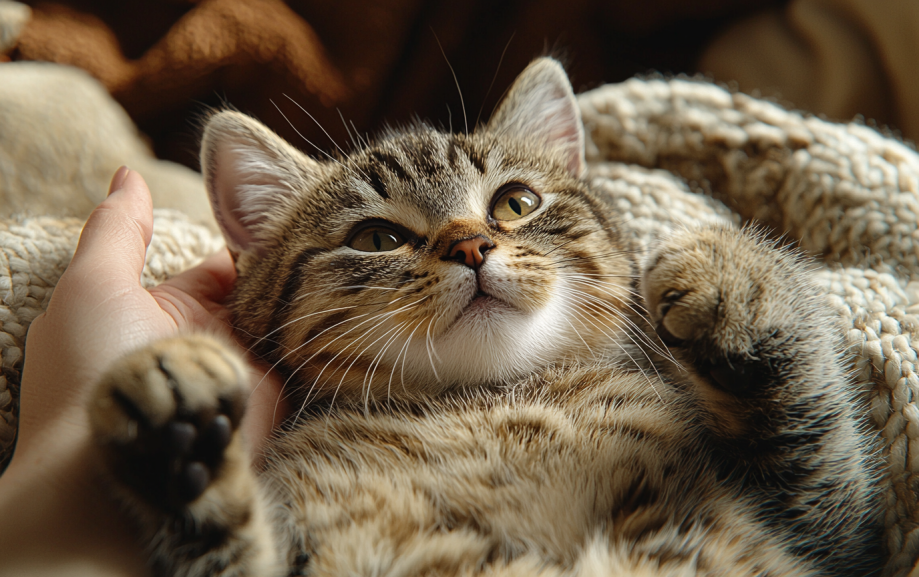Causes of Constipation in Cats
Understanding what causes constipation in cats is the first step toward effective treatment and prevention. Several factors can contribute to this condition:
Common Dietary Causes
- Low Fiber Diet: Cats that consume a diet low in fiber are more prone to constipation. Fiber helps move food through the digestive tract, and without it, your cat’s system can slow down.
- Dehydration: Cats that don’t drink enough water are at a higher risk of constipation. Hydration is crucial for softening the stool and ensuring it passes smoothly.
Medical Conditions Leading to Constipation
- Obstructions: Foreign objects, hairballs, or even tumors can block the intestines and cause constipation.
- Megacolon: This condition occurs when the colon becomes abnormally enlarged, leading to chronic constipation.
- Arthritis: Cats with arthritis may struggle to reach the litter box, causing them to hold in their stool longer than they should.
Environmental and Behavioral Factors
- Stress: Changes in environment, routine, or the presence of new pets can cause stress, leading to constipation.
- Lack of Exercise: Sedentary cats may experience slower digestion, increasing the likelihood of constipation.
The Impact of Stress on Cat Constipation
Stress is a significant contributor to digestive problems in cats, including constipation.
Common Stressors
- Environmental Changes: Moving, rearranging furniture, or introducing new pets can stress your cat.
- Routine Changes: Changes in feeding times or schedules can also cause stress.
How to Reduce Stress
- Provide a Safe Space: Create a quiet, comfortable area where your cat can retreat when feeling stressed.
- Use Calming Products: Products like pheromone sprays or diffusers can help reduce anxiety in cats.
Symptoms of Cat Constipation
Recognizing the signs of constipation in your cat is crucial for early intervention:
How to Identify Constipation in Your Cat
- Infrequent Bowel Movements: If your cat is not having regular bowel movements, this could indicate constipation.
- Straining in the Litter Box: Cats may spend more time in the litter box, straining to pass a bowel movement.
- Hard, Dry Stools: When they do defecate, the stool is often small, hard, and dry.
- Lethargy and Loss of Appetite: Constipated cats might also become less active and lose interest in food.
Differentiating Between Constipation and Other Digestive Issues

- Vomiting: While constipation can cause vomiting, it’s important to differentiate it from other digestive issues like hairballs or more severe conditions like intestinal blockages.
- Diarrhea: Sometimes, diarrhea can alternate with constipation, especially if the cat’s digestive system is irritated.
Diagnosing Constipation in Cats
If you suspect your cat is constipated, a visit to the vet is essential. Here’s what to expect during the diagnosis process:
Veterinary Diagnosis Procedures
- Physical Examination: The vet will likely start with a physical exam, palpating the abdomen to feel for any blockages or discomfort.
- Medical History: Providing a detailed history, including diet, behavior, and recent changes in the cat’s environment, can help the vet identify the cause.
Common Tests and What They Reveal
- X-rays: X-rays can show if there’s a blockage or if the colon is enlarged.
- Blood Tests: These can help identify any underlying conditions that might be contributing to constipation, such as kidney disease or hypothyroidism.
- Ultrasound: In some cases, an ultrasound may be necessary to get a clearer picture of the intestines and identify any abnormalities.
Treatment Options for Cat Constipation
Once a diagnosis is made, treatment can begin. The severity of the constipation will determine the best course of action:
Home Remedies and Dietary Adjustments
- Increase Fiber Intake: Adding fiber to your cat’s diet, such as through specialized cat food or supplements, can help improve digestion.
- Hydration: Encourage your cat to drink more water. Wet cat food is also a good option to increase moisture intake.
- Pumpkin or Psyllium: A small amount of pureed pumpkin or psyllium husk mixed into their food can help soften the stool and ease bowel movements.
Veterinary Treatments and Medications
- Laxatives and Stool Softeners: Your vet might prescribe medications to soften the stool or stimulate bowel movements.
- Enemas: In more severe cases, an enema administered by a vet might be necessary to relieve constipation.
- Medication for Underlying Conditions: If an underlying condition like megacolon is causing constipation, treating that condition is essential.
When Surgery is Necessary
- Surgical Intervention: In rare cases, surgery might be required to remove a blockage or correct a structural issue like megacolon. This is usually a last resort when other treatments have failed.
READ ALSO: Cat Flu Explained: Everything You Need to Know
The Role of Exercise in Preventing Constipation

Physical activity is essential for maintaining healthy digestion in cats. A lack of exercise can slow down the digestive process, leading to constipation.
Why Exercise Matters
- Stimulates Digestion: Regular movement helps stimulate the digestive tract, making it easier for food to pass through the intestines.
- Reduces Obesity Risk: Obesity is a common cause of constipation. Exercise helps maintain a healthy weight, which can reduce the risk of constipation.
Encouraging Your Cat to Move
- Interactive Play: Use toys like laser pointers, feather wands, or motorized toys to engage your cat in active play.
- Cat Trees and Perches: Providing climbing structures encourages natural behaviors like jumping and climbing, which can help keep your cat active.
- Puzzle Feeders: Puzzle feeders can make mealtime more engaging and encourage physical activity as your cat works to get the food.
Natural Supplements to Aid Digestion
In addition to dietary changes, certain natural supplements can support your cat’s digestive health.
Fiber Supplements
- Psyllium Husk: This fiber supplement can be mixed with your cat’s food to help bulk up the stool and promote regular bowel movements.
- Pumpkin: Canned pumpkin is a popular remedy for constipation. It’s high in fiber and safe for cats in small amounts.
Probiotics
- Beneficial Bacteria: Probiotics can help maintain a healthy balance of gut flora, which is crucial for proper digestion. Look for cat-specific probiotic supplements.
Omega-3 Fatty Acids
- Anti-inflammatory Properties: Omega-3 supplements can reduce inflammation in the digestive tract and help ease constipation.
The Importance of Litter Box Hygiene
Maintaining a clean and stress-free environment for your cat is essential to prevent constipation.
Litter Box Maintenance
- Cleanliness: Cats are particular about their litter boxes. If the box is dirty, they may avoid using it, leading to constipation. Scoop the box daily and change the litter regularly.
- Litter Type: Some cats prefer specific types of litter. Experiment with different textures to find what your cat likes best.
Litter Box Location
- Accessibility: Ensure the litter box is in a quiet, easily accessible location. Older cats or those with mobility issues may struggle with boxes that are difficult to reach.
- Multiple Boxes: If you have multiple cats, provide one litter box per cat plus one extra. This helps reduce stress and ensures each cat has a clean place to go.
Prevention Tips for Constipation in Cats
Preventing constipation is always better than treating it. Here are some strategies to keep your cat’s digestive system healthy:
Dietary Strategies for Healthy Digestion
- High-Quality Cat Food: Choose a cat food that is high in fiber and formulated for digestive health.
- Regular Feeding Schedule: Maintain a consistent feeding schedule to help regulate your cat’s digestion.
The Role of Hydration and Exercise
- Ensure Fresh Water is Always Available: Consider using a water fountain to encourage your cat to drink more.
- Encourage Physical Activity: Regular playtime can help stimulate your cat’s digestive system and prevent constipation.
Regular Check-ups and Early Detection
- Routine Vet Visits: Regular check-ups can help detect any health issues before they become serious.
- Monitor Your Cat’s Bowel Movements: Keep an eye on your cat’s litter box habits to catch any changes early.
Senior Cats and Constipation
As cats age, they become more susceptible to constipation. Special care is needed to manage this issue in senior cats.
Age-Related Changes
- Slower Metabolism: Older cats often have slower metabolisms, which can lead to constipation.
- Decreased Activity: Senior cats tend to be less active, which can slow down digestion and increase the risk of constipation.
Special Considerations for Senior Cats
- Adjust Diet: Senior cats may benefit from a diet specifically formulated for older felines, which includes more fiber and moisture.
- Monitor Health: Regular vet visits are crucial to monitor any age-related conditions that could contribute to constipation, such as arthritis or kidney disease.
When to See a Vet

While mild cases of constipation can often be managed at home, there are times when veterinary intervention is necessary:
Warning Signs of Severe Constipation
- No Bowel Movements for Several Days: If your cat hasn’t defecated in two or more days, it’s time to see the vet.
- Blood in Stool or Vomit: Blood is a serious sign that requires immediate attention.
- Painful Abdomen: If your cat shows signs of pain when you touch their abdomen, they may have a blockage.
Potential Complications of Untreated Constipation
- Chronic Constipation: Untreated constipation can lead to more severe and chronic conditions, like megacolon.
- Dehydration and Malnutrition: Constipation can cause your cat to eat less, leading to dehydration and malnutrition.
Frequently Asked Questions
How often should my cat have a bowel movement?
- Most cats should have a bowel movement at least once a day. However, this can vary based on diet, age, and overall health.
Can I give my cat human laxatives?
- No, human laxatives can be dangerous for cats. Always consult your vet before giving your cat any medication.
Is constipation in cats a sign of a serious condition?
- It can be. While occasional constipation might not be serious, frequent or severe constipation can indicate underlying health issues.
What’s the best way to keep my cat hydrated?
- Ensure your cat always has access to fresh water. Wet food can also be a good way to increase water intake.
Conclusion
By following this comprehensive guide, you’ll be well-equipped to treat and prevent constipation in your cat, ensuring they stay healthy and comfortable. Regular monitoring and a proactive approach to your cat’s diet and lifestyle can make all the difference in preventing constipation from becoming a chronic issue.

